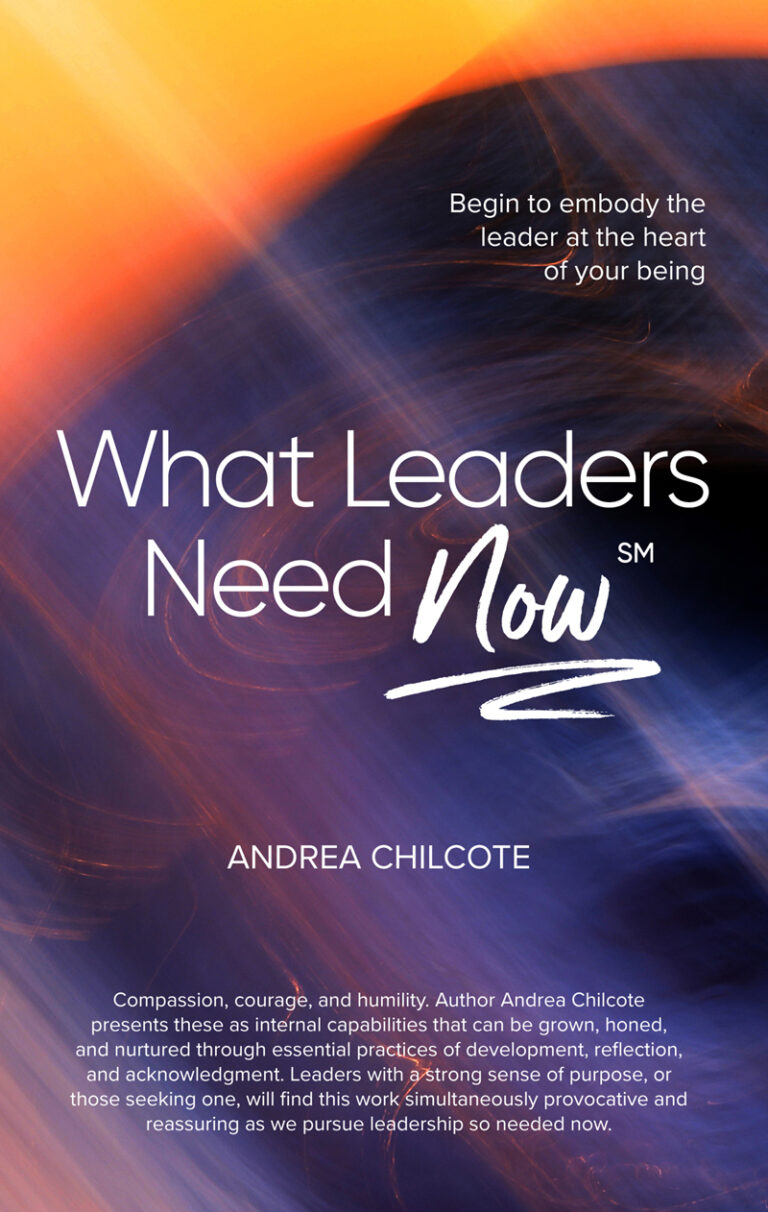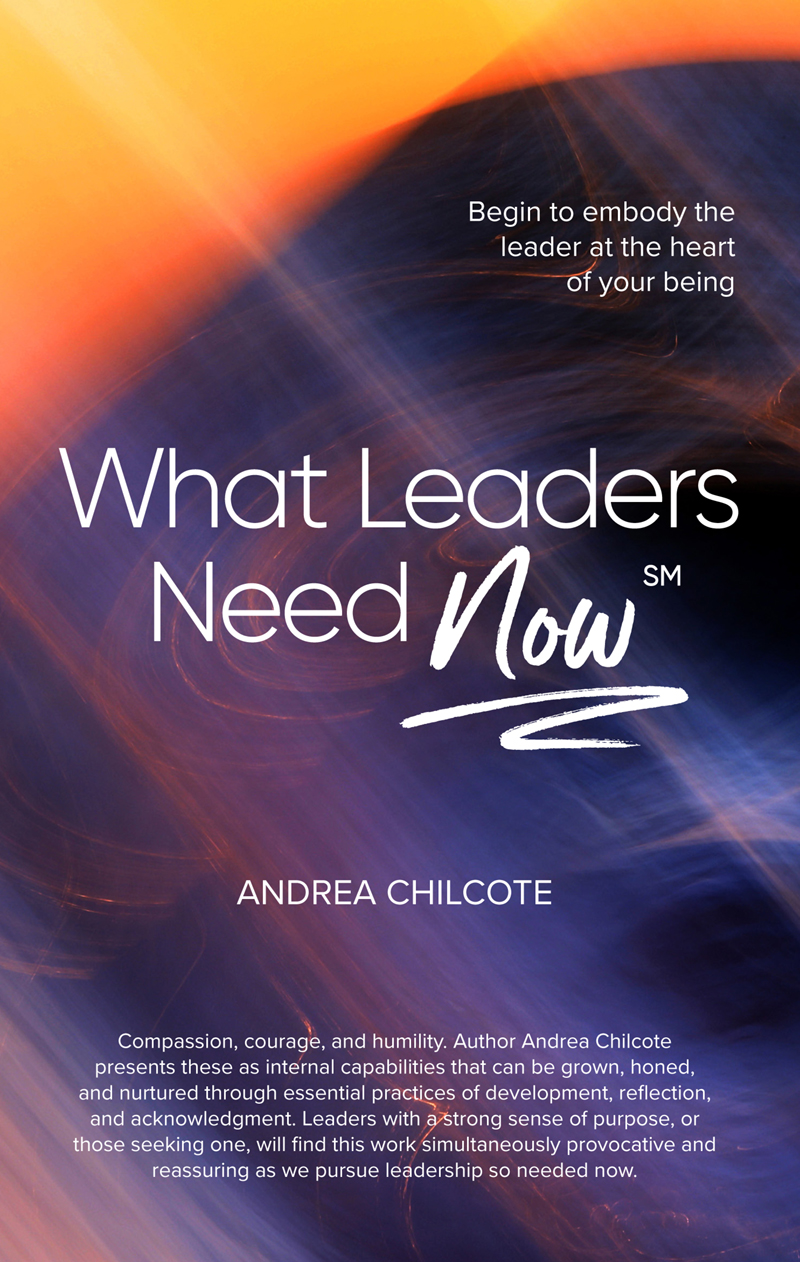“What do leaders need now? I posit that we need courage and a lot of it,” writes executive coach Andrea Chilcote in Chapter One of WHAT LEADERS NEED NOW. Chilcote writes this after asserting that “[d]uring the COVID-19 pandemic, courage was demonstrated in so many ways, in organizations both ‘essential’ and ‘nonessential.’” However, this was a period when leaders in every sphere willingly obeyed pandemic restrictions, even those that undermined their businesses’ and employees’ livelihoods. Yet Chilcote lists “standing up to authority” as an example of courage leaders need (along with starting a new business, changing careers, whistle-blowing, and firing a close friend).
Apart from courage, she argues that leaders need compassion and humility, devoting two more chapters of her 98-page book to these qualities. She writes, “It is my hope there is something compelling here for you personally—either a desire to build and strengthen the qualities within yourself or to create a team, organization, or community in which they are represented more fully.” Chilcote advises leaders on how to show vulnerability, citing research that shows that taking responsibility for mistakes strengthens trust by conveying integrity and creating the sense that it’s safe to make mistakes. She goes on to explain that honesty and openness about ourselves “has been highlighted as an essential element in everything from high-trust teams to inclusive workplaces.”
She also takes on the issue of burnout: “When did we begin expecting more than is expected?” This viewpoint, she says, will make her unpopular in management circles, even as she admits that more and more executives are accepting the need for work-life balance. She also claims that Diversity, Equity, and Inclusion (DEI) shows a lack of courage among leaders who “often leave because the risk of exposing the lack of inclusion in their environment is too great.” This may be so, but it is also the case that leaders have been rejecting DEI because it undermines meritocracy in their organizations.
The final chapter of the book explains the three practices needed to implement courage, compassion, and humility: development, acknowledgment, and reflection. While her analyses and guidance may help leaders improve personally, the linkages between her advice and better professional performance are somewhat tenuous. However, she brings over 20 years of coaching experience and ample research sources—so her program will almost certainly be useful to leaders at some level.
Author Andrea Chilcote stays within the standard parameters of leadership advice, despite presenting herself at points as a maverick. Since she’s been an executive coach for over 20 years, her techniques are probably effective, at least on a personal level, which may or may not help with leaders’ professional performances.
~Kevin Baldeosingh for IndieReader


